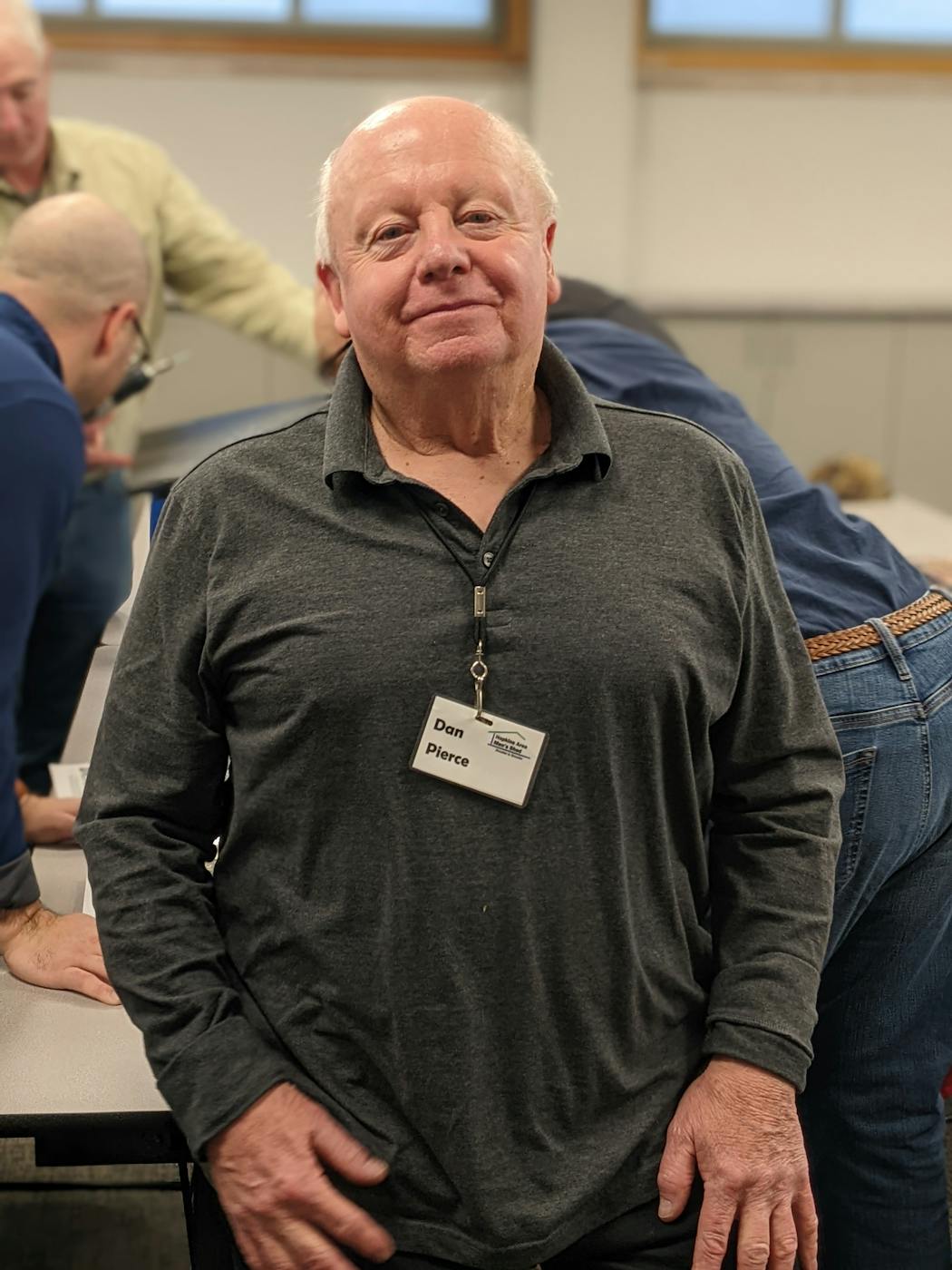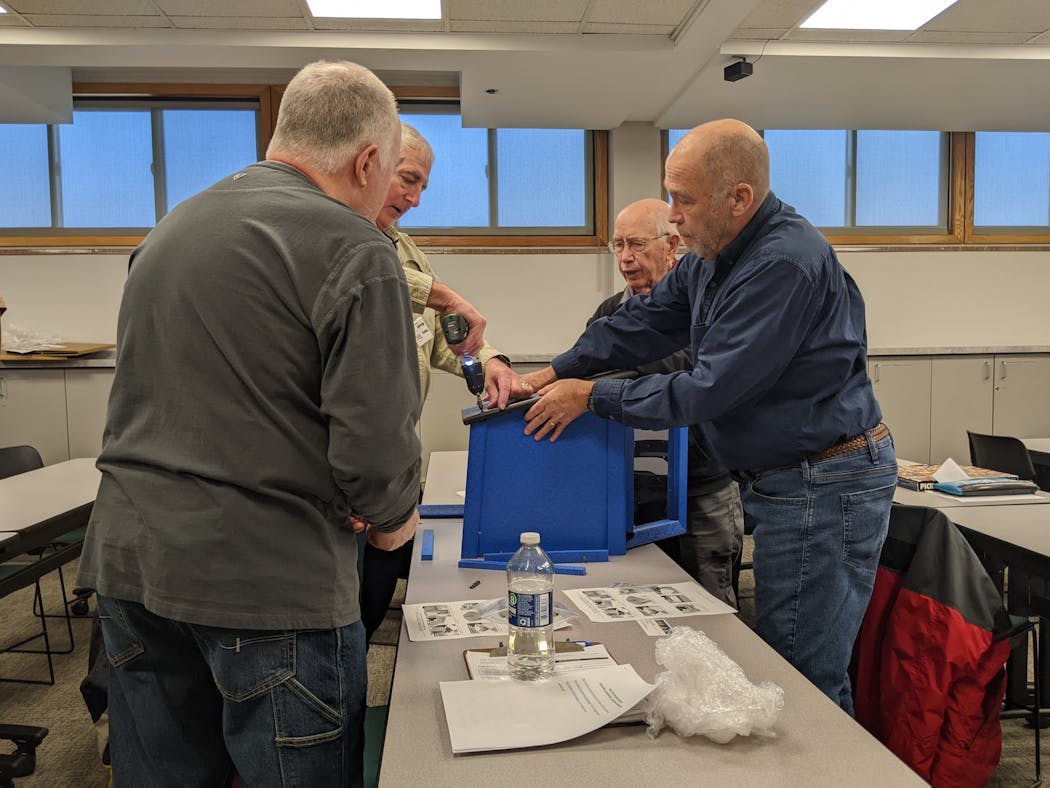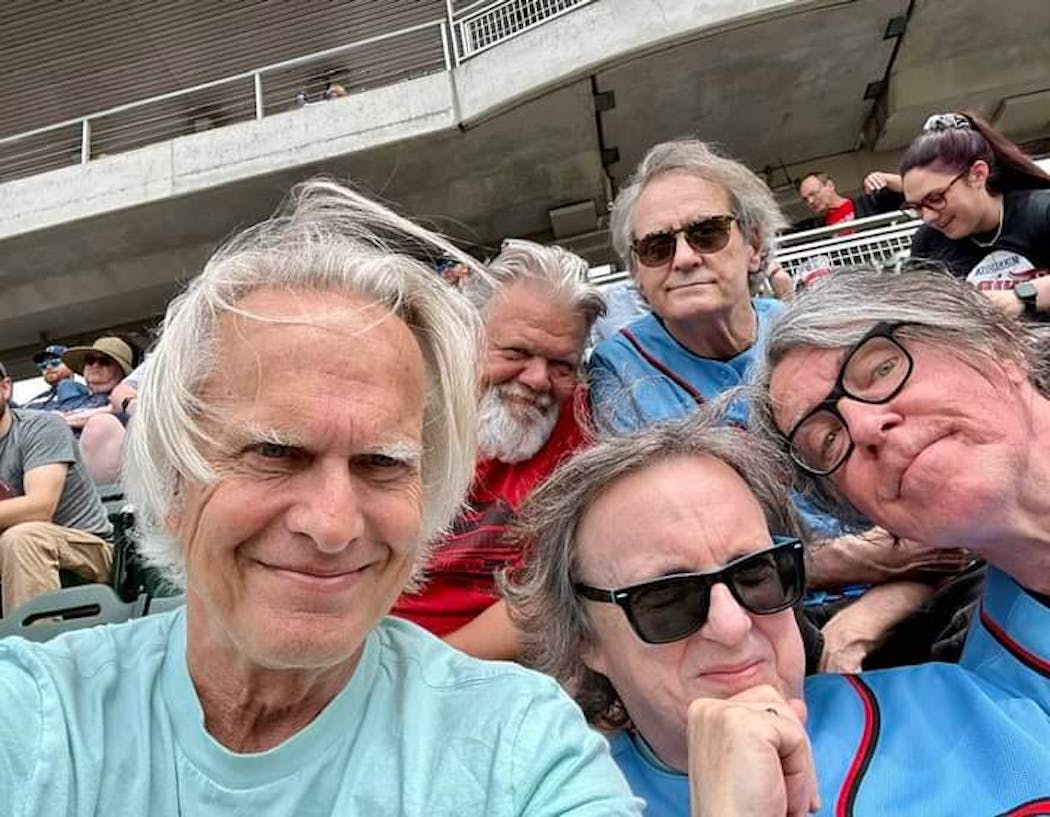The Loneliness Cure
Chatting over the whir of cordless screwdrivers, a roomful of men were assembling Little Free Library boxes at the Hopkins Activity Center. What looked like a laid-back afternoon of puttering with tools was actually part of an international movement to fight loneliness.
The Hopkins Men's Shed is one of 10 such groups in Minnesota. All are part of the Men's Shed Association, an international organization that aims to bring retired men together "shoulder to shoulder," as their motto states.
"It gives you a purpose," said Dan Pierce. " 'Hey, we've got Shed this week." The retired beverage distributor from Plymouth became involved with the Hopkins Men's Shed not long after it was established, in 2016. One of his favorite projects the group has undertaken was building beds for local kids who didn't have them.
Purpose, research has shown, is key to protecting against loneliness. A 2023 psychology studyfound that people who reported a "purpose in life" and found value in their activities were less lonely, no matter their age.
Joining a group is one way to find purpose and connection. And the so-called "social capital" that joining regularly with others creates is healthy not just for individuals but for communities as a whole. That's especially important at a time when rates of participation in almost everything — from organized religion to civic groups and clubs — has dwindled.
In our series the Loneliness Cure, we've been looking at how loneliness affects health and highlighting ways we can counteract it in Minnesota. With weekly challenges that have encouraged readers to call their mother, compliment a stranger and make a new friend, we're working to help people feel a little less lonely.
Getting together, giving back
According to the Mayo Clinic Health System, a sense of purpose doesn't need to be a grand project or a lofty goal. It's simply something — no matter how big or small — that gives your life meaning and structure from one day to the next.
But there are times in life when it can be difficult to feel purposeful. Retirement is a life change that can drive loneliness, said Dr. Patrick Bigaouette, a psychiatrist at Mayo. But loneliness can be triggered by any major role shift or milestone such as leaving home for college, becoming a new parent, becoming an empty nester or losing a spouse.
Instead of searching for the meaning of life, Bigouette and other experts suggest starting small.
"It can feel very overwhelming. Like, 'How do I build my community through a new hobby?' " he said. Something as easy as taking a class at a gym once a week is a great first step. "Suddenly you're familiar with the other people in the class and you're starting to build this wellness community with the people at the gym," he said.
Volunteering regularly can have the same impact, said AARP MN State Director Cathy McLeer.
"One way to really counteract loneliness is to give back, to find something that you're passionate about that gives you a purpose, to get out and connect with others," McLeer said. She suggested AARP Foundation's Experience Corps, which trains volunteers age 50 and older to tutor or mentor elementary students who aren't reading at grade level.
A seat at Third Space Café
In 1995, social scientist Robert Putnam shared his research about the decline in connection in his best-selling book "Bowling Alone: The Collapse and Revival of American Community." At the time, he pointed to television as one of the likely causes.
In the nearly 30 years since his book came out, opportunities to stay home and stream or scroll have flourished. Filmmakers Rebecca Davis and her brother Pete Davis, a former student of Putnam's at Harvard, revisited that research in a new documentary called "Join or Die."
The film argues that "the fate of America depends" on people getting together in real life and that online groups and Zoom interactions aren't a true replacement for face-to-face connection.
"Research shows that having people around who know our names changes our psychology. It helps us behave more virtuously," explained Laurie Santos, a cognitive scientist and professor at Yale, in her recent Happiness Lab podcast series on fighting loneliness. "When people know who we are, we want to win their trust. And if the people around us are doing the same thing, if they, like us, want to be trustworthy and do nice things, then that's a win-win that makes life easier for everyone in the community," she said.
Groups can provide that, and so can places.
Minneapolis café owner Erin Ryan-Mosley studied sociology in college. The idea of a "third space," always stuck with her. The basic concept is that we all have three spaces – the first is home, the second is a public place we have to go to, like work or school.
"Your third space is somewhere you actively choose to seek out," Ryan-Mosley said. "This can be your favorite running trail, your happy hour bar, or your neighborhood café."
That's why she decided to name the space she opened on Lyndale Avenue Third Space Café. The café hosts community events such as yoga and live music each week. The goal is to connect with the people who come through their doors, Ryan-Mosley said.
"It's meant to be somewhere you feel safe, comfortable and can be fully yourself," she said. "It's generally a place you can go to either with friends, partners, or by yourself to feel a larger sense of community."
A more freewheeling approach to forming a group works just fine, too.
After reading our Loneliness Cure series, David Aquilina from Richfield emailed to share his personal remedy for loneliness — find your people. "Then, get out and hang out with them," he said.
He attached a photo of his like-minded friends — a gray-haired group who met through their love of local music shows at Minneapolis venues including the Schooner Tavern, 331 Club and the Hook & Ladder Theater and Lounge. They also happen to love baseball. In the summer, they go to mid-week Twins games, sometimes sporting matching jerseys. Their name: The Gentlemen of Leisure.
"If I needed help right now — someone to talk to, whatever — I could call any of these guys, and they would come running," Aquilina wrote.



